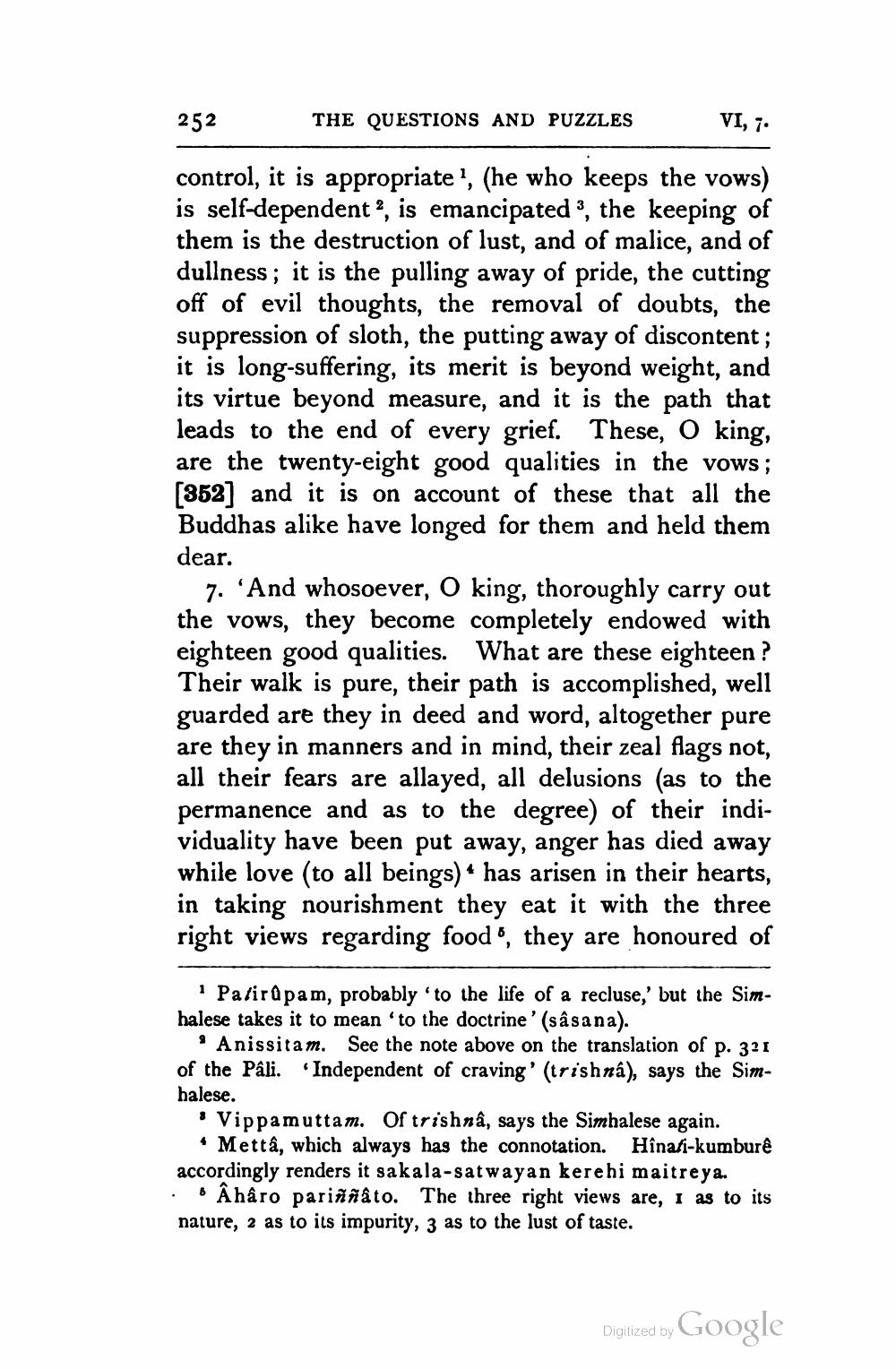________________
252
THE QUESTIONS AND PUZZLES
VI, 7.
control, it is appropriate 1, (he who keeps the vows) is self-dependent 2, is emancipated, the keeping of them is the destruction of lust, and of malice, and of dullness; it is the pulling away of pride, the cutting off of evil thoughts, the removal of doubts, the suppression of sloth, the putting away of discontent; it long-suffering, its merit is beyond weight, and its virtue beyond measure, and it is the path that leads to the end of every grief. These, O king, are the twenty-eight good qualities in the vows; [352] and it is on account of these that all the Buddhas alike have longed for them and held them dear.
7. 'And whosoever, O king, thoroughly carry out the vows, they become completely endowed with eighteen good qualities. What are these eighteen? Their walk is pure, their path is accomplished, well guarded are they in deed and word, altogether pure are they in manners and in mind, their zeal flags not, all their fears are allayed, all delusions (as to the permanence and as to the degree) of their individuality have been put away, anger has died away while love (to all beings) has arisen in their hearts, in taking nourishment they eat it with the three right views regarding food, they are honoured of
1 Palirupam, probably 'to the life of a recluse,' but the Simhalese takes it to mean 'to the doctrine' (sâsana).
Anissitam. See the note above on the translation of p. 321 of the Pâli. Independent of craving' (trishna), says the Simhalese.
Vippamuttam. Of trishnâ, says the Simhalese again. Mettâ, which always has the connotation. Hînati-kumburê accordingly renders it sakala-satwayan kerehi maitreya. Âhâro parinñâto. The three right views are, I as to its nature, 2 as to its impurity, 3 as to the lust of taste.
Digitized by
Google




